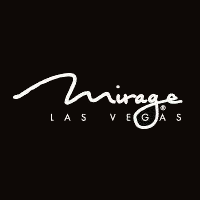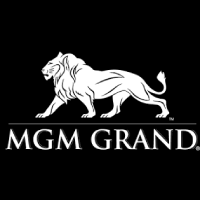Convention Management
Use Our Pricing Wizard to Get a Quote on Your Event in 5 Minutes






Convention Management Best Practices for Las Vegas Events
Las Vegas is one of the world’s premier destinations for conventions and large-scale events. From corporate meetings to trade shows, Las Vegas offers an unbeatable combination of convenience, amenities, and entertainment options, making it a popular choice for event planners. But managing a successful convention in Sin City can be tricky if you need to know what you’re doing. We’ve put together this guide on convention management best practices for Las Vegas events. In this post, we’ll cover everything from selecting the right venue to creating engaging experiences that will keep your attendees coming back year after year. So read on to learn how to maximize success at your next Las Vegas event!
Planning and Preparation
Setting clear goals and objectives for a convention can help you develop the most effective event strategy. Estimating the size of your event is essential when considering logistics like venue selection and staffing needs. Additionally, understanding the purpose of your convention will inform other details, such as message creation and target audience. Budgeting for a convention requires foreseeing all potential expenses related to hosting the event, such as audiovisual equipment, catering, and speakers. An organized budget is critical to ensure that your convention runs smoothly while staying within a specific limit.
Technology is also a crucial tool in achieving successful convention management. A well-oiled system for registration and ticketing helps streamline the check-in process and ensure that all information is consistently up to date. Similarly, event management software helps coordinate the agenda and keep track of speaker timeslots, breakouts, and other activities. Finally, it’s essential to consider the people attending your convention when planning an event in Las Vegas. Having a good understanding of who will be attending and their individual needs helps you create a more inclusive event that provides everyone with access, support, and comfort.
Promoting the Event
Las Vegas is one of the most popular cities for conventions and events. To ensure that your event is successful, it’s essential to promote it in a way that will reach the right audiences and deliver results. Before creating a marketing plan, you must define your target audience and identify their needs to develop an effective strategy.
To identify potential attendees, consider who would be interested in your event’s content or theme. Once you have recognized these people, look into which platforms they use to engage with events – from trade publications and online forums to social media channels like Facebook, Twitter, and Instagram.
Once you know where to find them, create a comprehensive list of campaigns specific to each platform for maximum exposure: press releases; blog posts; email blasts; webinars/webinar series; targeted ads on search engines such as Google AdWords; hashtag-based promotions on Twitter or Instagram; website banners announcing the event, etc. Make sure all communications are tailored towards those relevant audiences and regularly updated with new information about upcoming speakers, activities, or attractions at the convention itself.
Choosing the Right Venue
Regarding convention management in Las Vegas, on-site management is essential for a successful event. Setting up registration and check-in procedures should be one of the main priorities for managers.
The first step in setting up registration and check-in is deciding the best procedure for the event. Will registration be open to the public or by invitation only? Once this has been determined, it’s essential to ensure all necessary technology and personnel are in place to manage registrations.
Another element of on-site management is ensuring the smooth operation of event activities. This includes staffing the event with experienced personnel, delegating tasks, and providing efficient customer service. Additionally, managers must pay attention to details such as food and beverage availability, signage, and space usage.
Convention managers must manage changes or unexpected issues during the event. This includes managing emergencies, unexpected delays, and cancellations. Managers must be prepared to handle these issues reasonably while maintaining a positive atmosphere and customer satisfaction.
Post-Event Evaluation
It is necessary to have a post-event evaluation after each event or convention has concluded. This allows the organizers to understand what worked well and what didn’t work as well as hoped. In some cases, this evaluation can also be used to determine the success of an event. For convention management in Las Vegas, a post-event evaluation should involve analyzing all aspects of the event. This includes attendance numbers, the quality of speakers, the food and catering,
and the overall atmosphere during the event.
We are gathering feedback from attendees and stakeholders.
Gathering feedback from attendees and other stakeholders is another essential part of post-event evaluation. This allows event organizers to understand if the attendees had a good experience or if they left disappointed. This information can then be used to make necessary changes for future events. Gathering this feedback should involve sending out surveys, holding focus groups, or conducting interviews with participants. This can provide valuable insights into what worked and what didn’t.
Analyzing the financial performance of an event.
In addition to gathering feedback from attendees, analyzing the financial performance of an event is also essential for post-event evaluation. This involves looking at expenses, profits, sponsorships, and other areas that contribute to the economic success of an event. This will allow organizers to get a better understanding of how profitable their event was, as well as what areas need improvement for future events.
We are analyzing the success of the event in achieving its goals.
The final aspect of post-event evaluation is analyzing the event’s success in achieving its goals. This involves looking at how well the event met its intended objectives in terms of attendance and providing a positive experience for attendees. It is also essential to measure whether or not the event was able to reach its target audience. By analyzing the success of an event in achieving its goals, organizers can gain valuable insights into what worked and what didn’t. This information can then improve future possibilities for the best experience possible.
Identifying areas for improvement for future events.
Once the post-event evaluation is complete, it is vital to identify areas for improvement for future events. This involves looking at all aspects of the event, from the overall atmosphere to the financial performance. Identifying these areas helps organizers make necessary changes and improvements, ensuring that future events are successful. By identifying areas for improvement, convention management in Las Vegas can ensure they do their best to create a successful and enjoyable experience for all attendees.
Our
SERVICES
Final Thoughts
Convention management in Las Vegas is vital to the event planning process. It involves managing all aspects of the event, from pre-planning to post-event evaluation. By following these steps, organizers can ensure that their events are successful, efficient, and enjoyable for all attendees. When convention managers can successfully manage each aspect of the event, attendees can be sure they will have a great experience at every event. By following these steps and taking post-event evaluation seriously, convention management in Las Vegas can ensure successful events for all involved.
At Conventions.com, we understand the importance of post-event evaluation and are here to help. We provide comprehensive consultation services for convention management in Las Vegas, which includes pre-planning, event management, and post-event analysis. With our help, your events can be sure to be successful and enjoyable for everyone involved. Contact us today to get started!
Let’s get moving.
- Conventions.com
- 101 Convention Center Drive Las Vegas, NV 89109
SPECIAL OFFER
Last Chance, Contact Us Now for an Instant Quote!
Why Wait on Slow, In-Experienced Event Coordinators. Save Time and Money. Get Your Quote Today!

- Home
- About Us
- Contact Us
- Privacy Policy
- Terms of Service